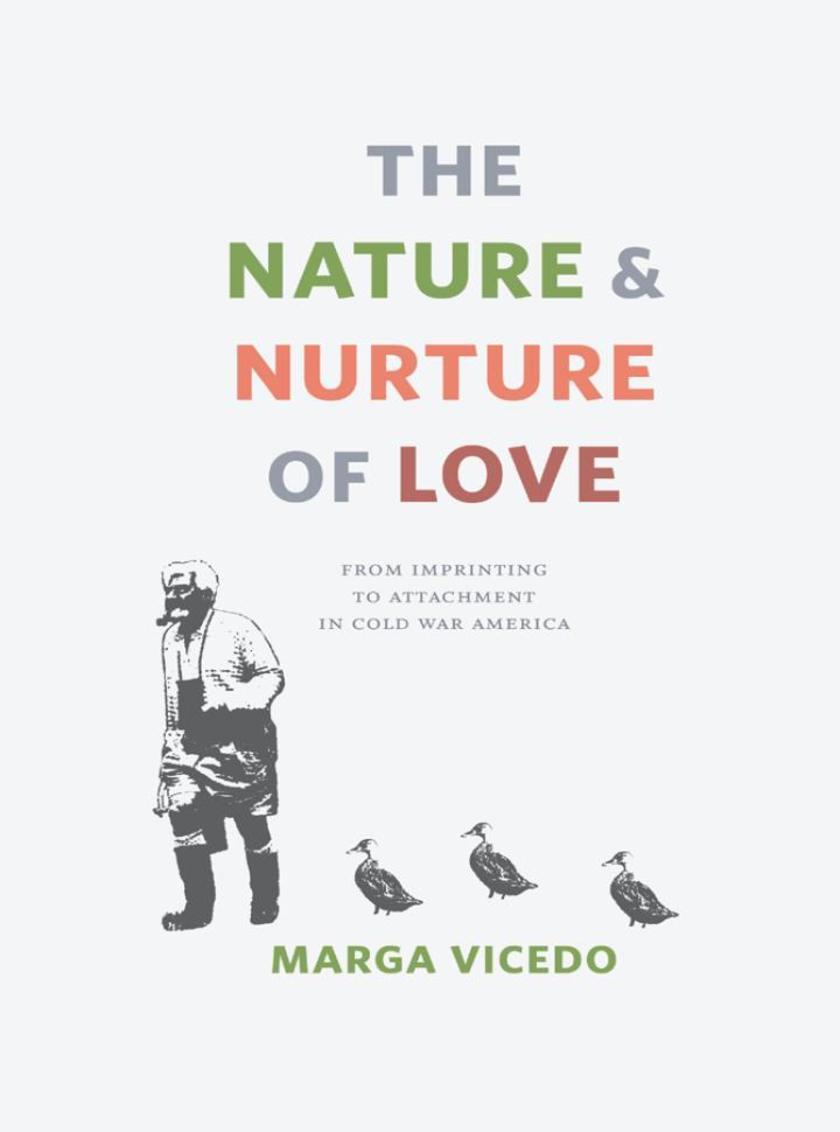
Nature and Nurture of Love
¥247.21
The notion that maternal care and love will determine a child's emotional well-being and future personality has become ubiquitous. In countless stories and movies we find that the problems of the protagonists-anything from the fear of romantic commitment to serial killing-stem from their troubled relationships with their mothers during childhood. How did we come to hold these views about the determinant power of mother love over an individual's emotional developmentAnd what does this vision of mother love entail for children and mothersIn The Nature and Nurture of Love, Marga Vicedo examines scientific views about children's emotional needs and mother love from World War II until the 1970s, paying particular attention to John Bowlby's ethological theory of attachment behavior. Vicedo tracks the development of Bowlby's work as well as the interdisciplinary research that he used to support his theory, including Konrad Lorenz's studies of imprinting in geese, Harry Harlow's experiments with monkeys, and Mary Ainsworth's observations of children and mothers in Uganda and the United States. Vicedo's historical analysis reveals that important psychoanalysts and animal researchers opposed the project of turning emotions into biological instincts. Despite those substantial criticisms, she argues that attachment theory was paramount in turning mother love into a biological need. This shift introduced a new justification for the pre*ive role of biology in human affairs and had profound-and negative-consequences for mothers and for the valuation of mother love.
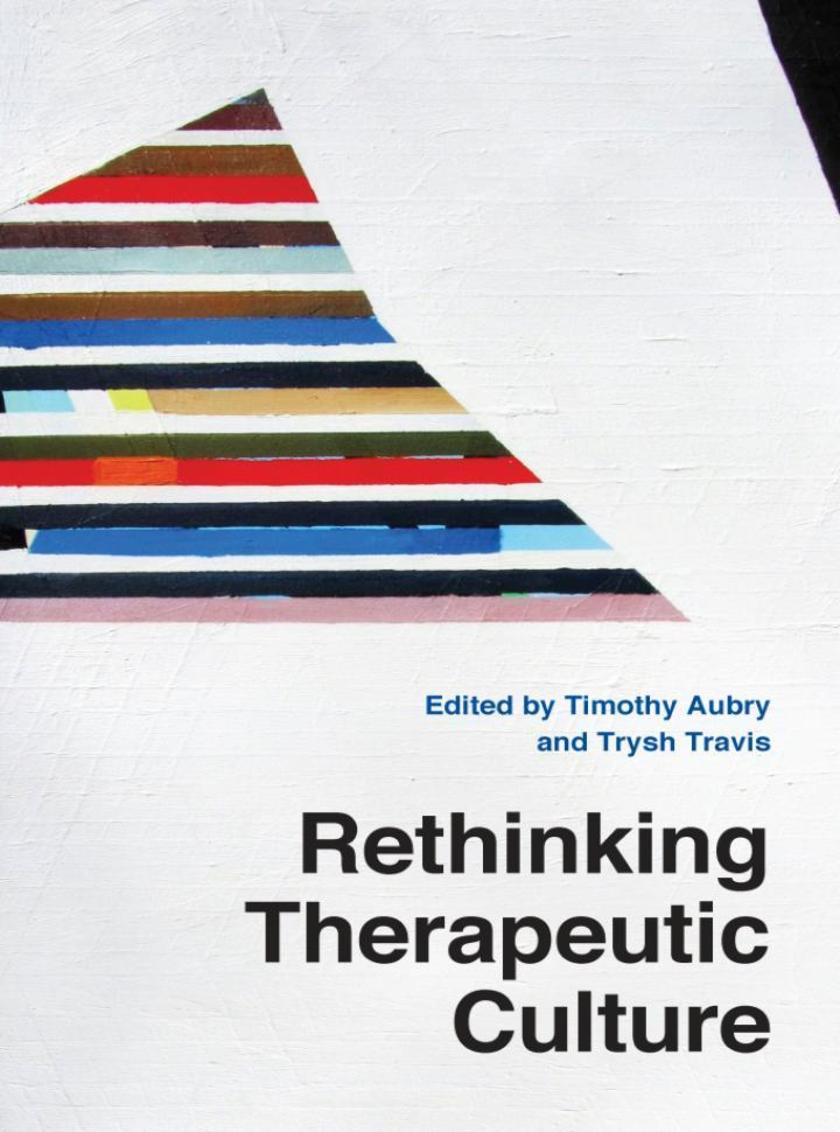
Rethinking Therapeutic Culture
¥247.21
Social critics have long lamented America's descent into a "e;culture of narcissism,"e; as Christopher Lasch so lastingly put it fifty years ago. From "e;first world problems"e; to political correctness, from the Oprahfication of emotional discourse to the development of Big Pharma products for every real and imagined pathology, therapeutic culture gets the blame. Ask not where the stereotype of feckless, overmedicated, half-paralyzed millennials comes from, for it comes from their parents' therapist's couches.?Rethinking Therapeutic Culture makes a powerful case that we've got it all wrong. Editors Timothy Aubry and Trysh Travis bring us a dazzling array of contributors and perspectives to challenge the prevailing view of therapeutic culture as a destructive force that encourages narcissism, insecurity, and social isolation. The collection encourages us to examine what legitimate needs therapeutic practices have served and what unexpected political and social functions they may have performed. Offering both an extended history and a series of critical interventions organized around keywords like pain, privacy, and narcissism, this volume offers a more nuanced, empirically grounded picture of therapeutic culture than the one popularized by critics. Rethinking Therapeutic Culture is a timely book that will change the way we've been taught to see the landscape of therapy and self-help.
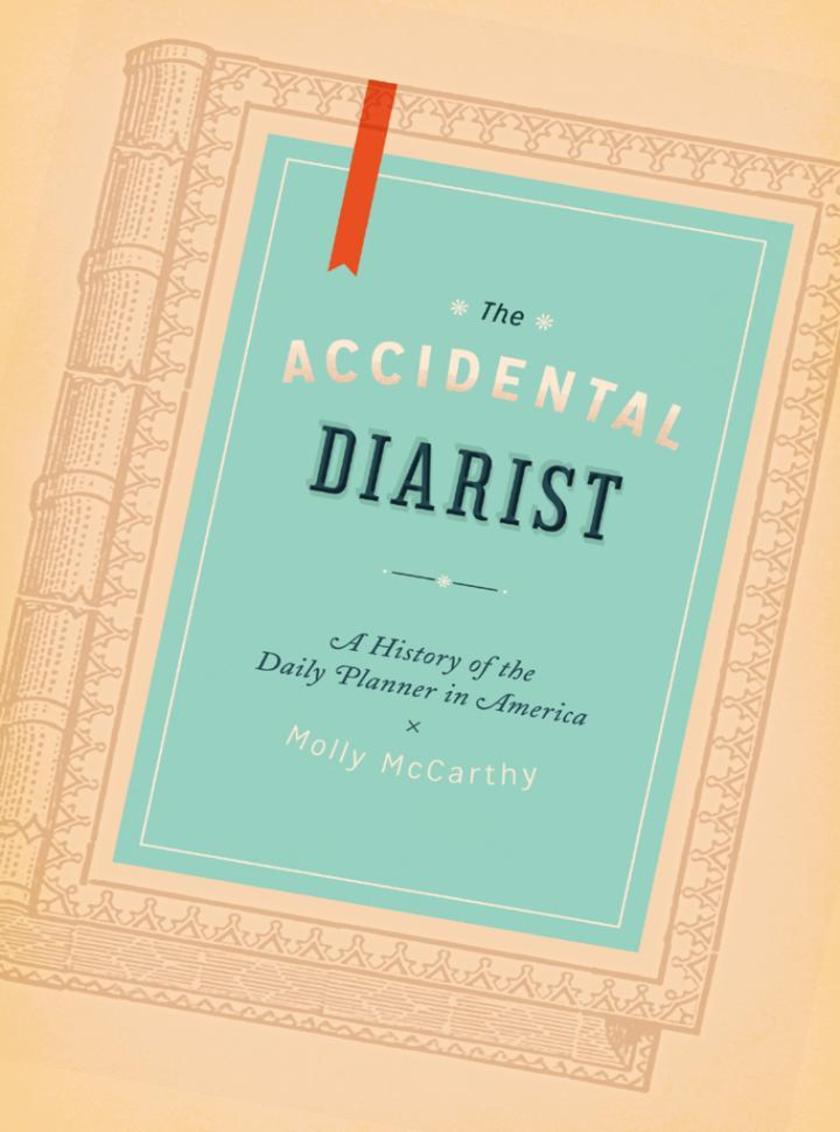
Accidental Diarist
¥247.21
In this era of tweets and blogs, it is easy to assume that the self-obsessive recording of daily minutiae is a recent phenomenon. But Americans have been navel-gazing since nearly the beginning of the republic. The daily planner-variously called the daily diary, commercial diary, and portable account book-first emerged in colonial times as a means of telling time, tracking finances, locating the nearest inn, and even planning for the coming winter. They were carried by everyone from George Washington to the soldiers who fought the Civil War. And by the twentieth century, this document had become ubiquitous in the American home as a way of recording a great deal more than simple accounts.In this appealing history of the daily act of self-reckoning, Molly McCarthy explores just how vital these unassuming and easily overlooked stationery staples are to those who use them. From their origins in almanacs and blank books through the nineteenth century and on to the enduring legacy of written introspection, McCarthy has penned an exquisite biography of an almost ubiquitous document that has borne witness to American lives in all of their complexity and mundanity.
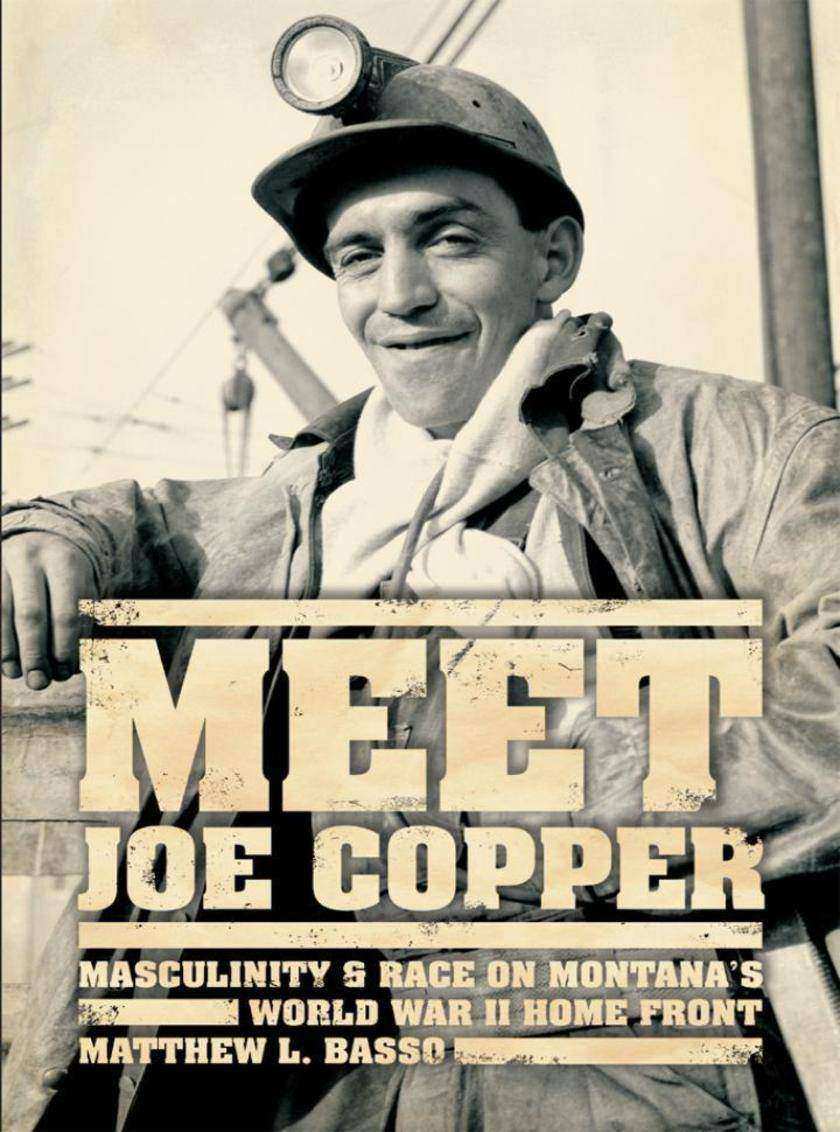
Meet Joe Copper
¥247.21
"e;I realize that I am a soldier of production whose duties are as important in this war as those of the man behind the gun."e; So began the pledge that many home front men took at the outset of World War II when they went to work in the factories, fields, and mines while their compatriots fought in the battlefields of Europe and on the bloody beaches of the Pacific. The male experience of working and living in wartime America is rarely examined, but the story of men like these provides a crucial counter-narrative to the national story of Rosie the Riveter and GI Joe that dominates scholarly and popular discussions of World War II.In Meet Joe Copper, Matthew L. Basso describes the formation of a powerful, white, working-class masculine ideology in the decades prior to the war, and shows how it thrived-on the job, in the community, and through union politics. Basso recalls for us the practices and beliefs of the first- and second-generation immigrant copper workers of Montana while advancing the historical conversation on gender, class, and the formation of a white ethnic racial identity. Meet Joe Copper provides a context for our ideas of postwar masculinity and whiteness and finally returns the men of the home front to our reckoning of the Greatest Generation and the New Deal era.
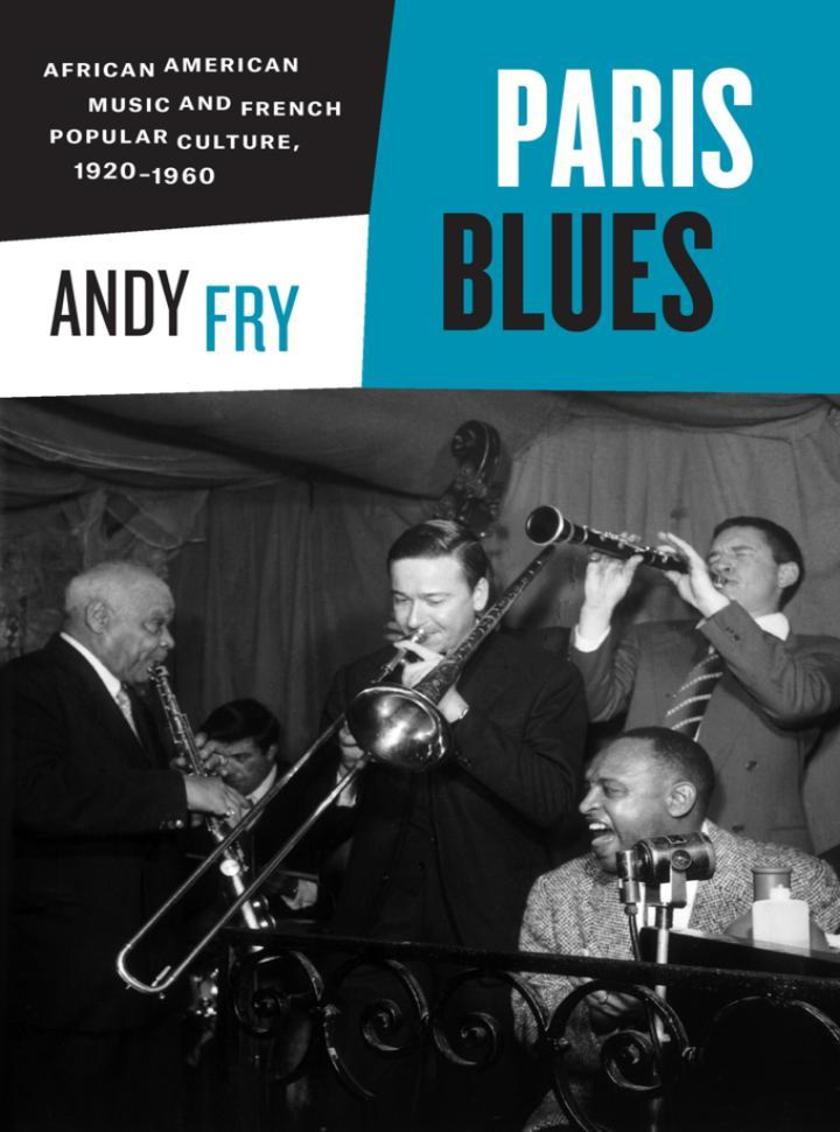
Paris Blues
¥247.21
The Jazz Age. The phrase conjures images of Louis Armstrong holding court at the Sunset Cafe in Chicago, Duke Ellington dazzling crowds at the Cotton Club in Harlem, and star singers like Bessie Smith and Ma Rainey. But the Jazz Age was every bit as much of a Paris phenomenon as it was a Chicago and New York scene.In?Paris Blues, Andy Fry provides an alternative history of African American music and musicians in France, one that looks beyond familiar personalities and well-rehearsed stories. He pinpoints key issues of race and nation in France's complicated jazz history from the 1920s through the 1950s. While he deals with many of the traditional icons-such as Josephine Baker, Django Reinhardt, and Sidney Bechet, among others-what he asks is how they came to be so iconic, and what their stories hide as well as what they preserve. Fry focuses throughout on early jazz and swing but includes its re-creation-reinvention-in the 1950s. Along the way, he pays tribute to forgotten traditions such as black musical theater, white show bands, and French wartime swing.?Paris Blues?provides a nuanced account of the French reception of African Americans and their music and contributes greatly to a growing literature on jazz, race, and nation in France.
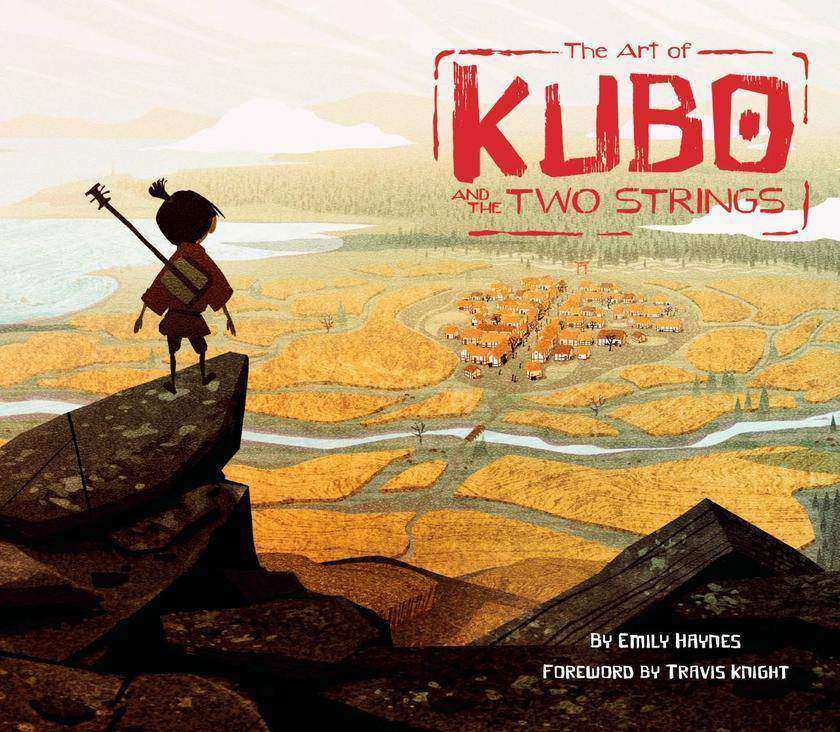
Art of Kubo and the Two Strings
¥247.11
From LAIKA, the Academy Award(R)-nominated studio behind Coraline, ParaNorman, and The Boxtrolls, comes a new adventure set in a mythical ancient Japan. In Kubo and the Two Strings, scruffy, kind-hearted Kubo cares devotedly for his mother while eking out a humble living in their sleepy shoreside village. But when a spirit from the past appears, Kubo suddenly finds himself entwined in a violent struggle against gods and monsters. This fully illustrated book offers a behind-the-scenes view of the amazingly detailed artwork and unique stop-motion animation style involved in the film's creation.
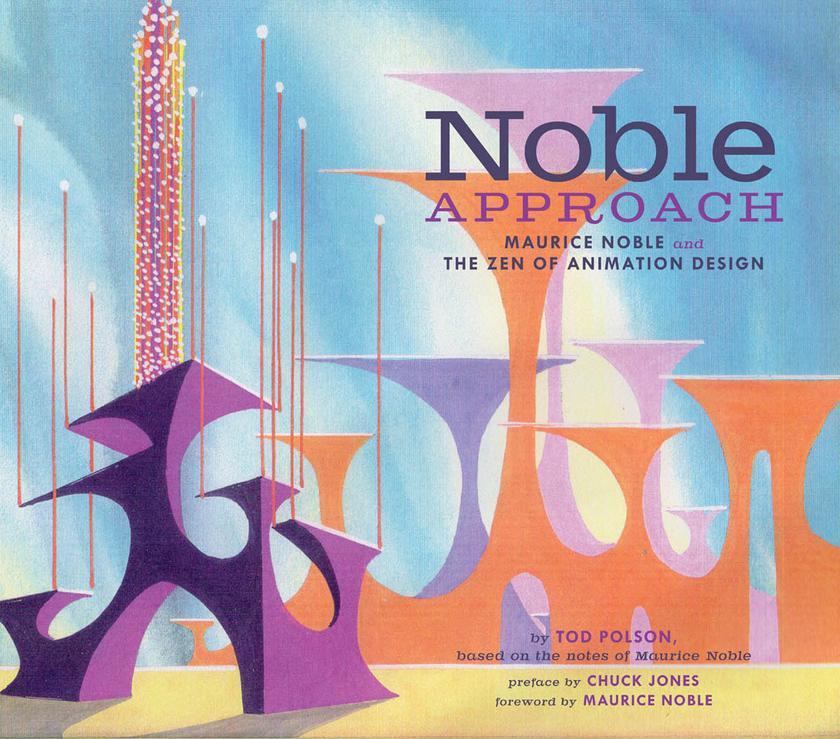
Noble Approach - Maurice Noble and the Zen of Animation Design
¥247.11
This extraordinary volume examines the life and animation philosophy of Maurice Noble, the noted American animation background artist and layout designer whose contributions to the industry span more than 60 years and include such cartoon classics as Duck Dodgers in the 24 1/2th Century, What's Opera, Doc?, and The Road Runner Show. Revered throughout the animation world, his work serves as a foundation and reference point for the current generation of animators, story artists, and designers. Written by Noble's longtime friend and colleague Tod Polson and based on the draft manuscript Noble worked on in the years before his death, this illuminating book passes on his approach to animation design from concept to final frame, illustrated with sketches and stunning original artwork spanning the full breadth of his career.

Art and Making of ParaNorman
¥247.11
From LAIKA, the studio behind the hit film Coraline, comes another marvel of stop-motion animation and creative storytelling. For ParaNorman, LAIKA's team of artists and animators built and brought to life a miniature town, a horde of zombies, and a quirky cast of characters to tell a tale of a boy with spooky talents who must save his hometown from a centuries-old curse. Featuring the amazing and detailed artwork that went into the film's creationfrom character sketches and concept art to puppets, textiles, set dressing, and 3-D printed facial modelsThe Art and Making of ParaNorman goes behind the scenes to explore the exacting, exciting steps that are achieved frame by frame in this newest LAIKA masterpiece.
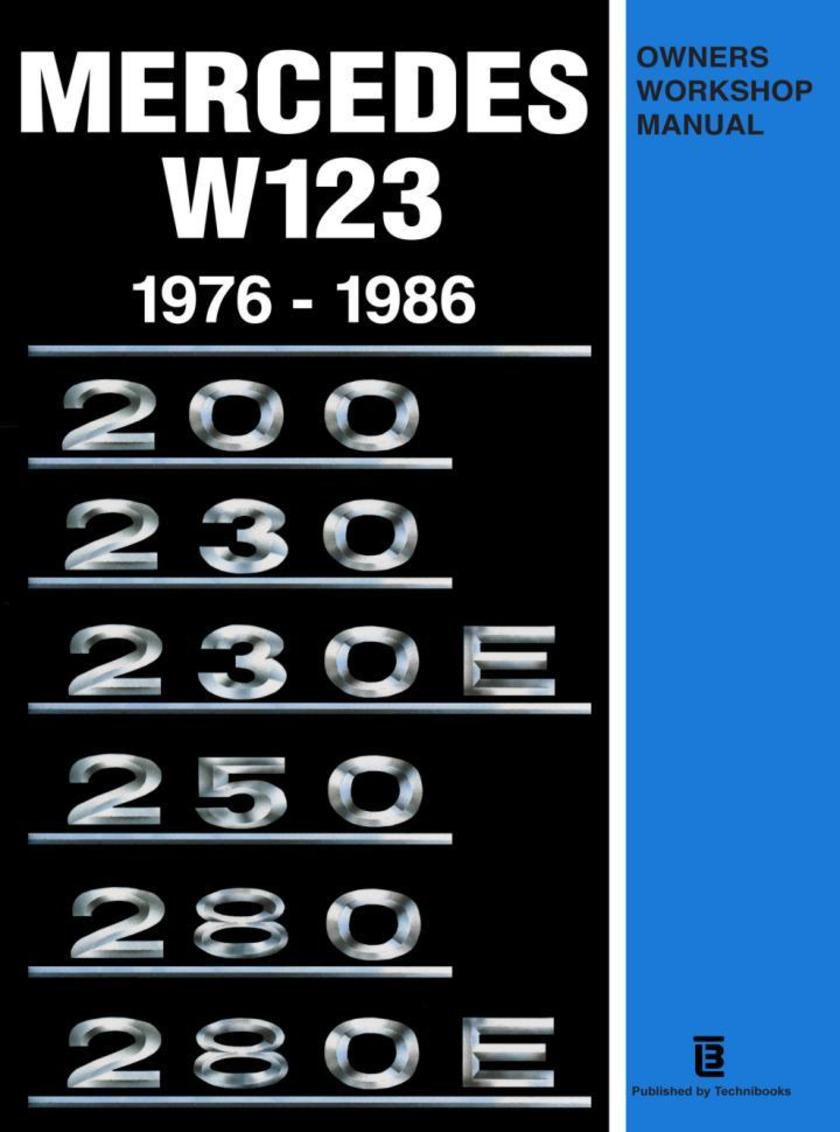
Mercedes W123 Own Work Man 1976-1986
¥245.17
Mercedes W123 Own Work Man 1976-1986 - The only manual written especially for the owners of both 4- and 6- cylinder engines that powered the 200/230/230E/250/280/280E from 1976-1986. Engines, electrics, transmission, brakes - a complete manual.

Mercedes E Class Petrol Workshop Manual W210 & W211 Series
¥245.17
This Owners Edition Workshop Manual covers the Mercedes-Benz E Class Diesel W210 & W211 Series from 2000 to 2006, fitted with the 1.8, 2.0, 2.6, 2.8, 3.2, 3.5, 4.3 & 5.0 Litre, 111, 112, 113, 271 & 272, with four, six & eight cylinder petrol engine. It has been specially written for the practical owner who wants to maintain a vehicle in first-class condition and carry out the bulk of his or her own servicing and repairs. Comprehensive step-by-step instructions are provided for service and overhaul operations to guide the reader through what might otherwise be unfamiliar and complicated tasks. Numerous drawings are included to amplify the text. With 190 pages, well illustrated.

Peter Williams Designed To Race
¥245.17
On his day, Peter Williams was the best motorcycle road racer in the world and is one of that small band of sportsmen, 'the best never to win a World Championship'. Peter's unique career in the 1960s and 1970s as racer, designer and development engineer culminated in many great victories on bikes from 125cc to 750cc. For two months in 1967 he lead the 500cc class of the World Championship on his single cylinder 500cc MkI Arter Matchless Special against the much more powerful Honda and MV Augusta multis of Mike Hailwood and Giacomo Agostini. Just when he was, perhaps, due for a 'works' ride, the Japanese withdrew from Grand Prix road racing and Peter joined the re-emergent manufacturers of Norton. Peter had two consuming passions; riding his motorcycles at 10/10ths of the limit, and for Britain to regain motorcycle supremacy. Indeed, the latter was his mission, his crusade, and so he rode almost exclusively British motorcycles but, interestingly, won his only Grand Prix on a foreign one. Peter's engineering designs gave him advantage on the race track and set the trends for what motorcycles are today. He was one of the first to design and race with disc brakes, the first in the world to design and use cast magnesium wheels and tubeless tyres. Peter won the 1970 500cc class British Championship and was the first in motorcycle racing to benefit from tobacco sponsorship. The 1973 John Player Norton 'Monocoque' incorporated all his previous experiments and the first twin spar frame. The pinnacle of his career came on this machine when he won the Formula 750 TT in the Isle of Man with record race and lap speeds. Peter's racing career came to an end in 1974 with a terrible crash at Oulton Park but his engineering continued with work at Cosworth Engineering and Lotus Engineering. Motorcycle innovation continues, too, with his true monocoque design, his Shell Chassis, which, in its electric drive form, finished 5th in its very first outing in the 2010 TT Zero.

Porsche 356 Owners Workshop Manual 1957-1965
¥245.17
This do it yourself workshop manual has been specially written for the owner who wishes to maintain his vehicle & carry out the bulk of his own servicing & repairs. There are step by step instructions & many illustrations are given of most dismantling, overhauling & assembling operations. Covers the 356A, 356B & 356C. Sb.

BMW 5 & 6 Series E12 - E24 - E28 -E34 Restoration Tips and Techniques
¥245.17
A wealth of restoration tips and techniques covering E12, E24, E28, E34, 5 and 6 Series BMWs built between 1972 and 1995. Covers all models from 518 to M6. Advice is given on acquiring a good 5 & 6 Series model, plus tips on restoring, engines, bodywork, trim, electrics, suspension & much more.

Mercedes Benz & Dodge Sprinter CDI 2000-2006 Owners Workshop Manual
¥245.17
Easy to follow step by step instructions & advice which enables the owner to carry out many jobs himself for the Mercedes-Benz Sprinter Van & Camper Diesel. Models covered: 208 CDI, 308 CDI, 211 CDI, 311 CDI, 411 CDI, 213 CDI, 313 CDI, 413 CDI, 216 CDI, 316 CDI, 416 CDI with the 2.2 & 2.7 litre CDI Diesel (types 611 DELA & 612 DELA) From 2000 to 2006 with the commom rail injection system. A total of 232 fully illustrated pages.

Porsche 356 Owners Workshop Manual 1957-1965
¥245.17
This do it yourself workshop manual has been specially written for the owner who wishes to maintain his vehicle & carry out the bulk of his own servicing & repairs. There are step by step instructions & many illustrations are given of most dismantling, overhauling & assembling operations. Covers the 356A, 356B & 356C. Sb.
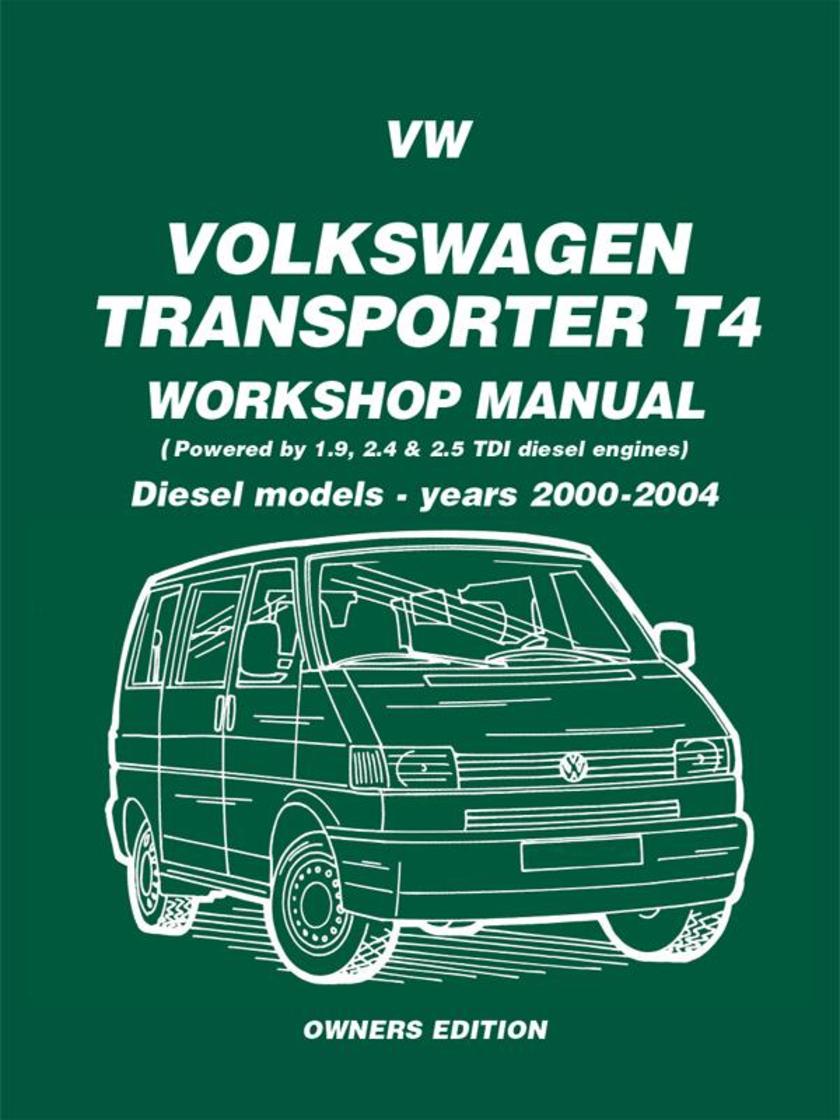
VW Transporter T4 (Petrol and Diesel - 1990-1995) Workshop Manual
¥245.17
Covers models from 1990 to 1995. Covering: short & long wheelbase, Van, Caravelle, Bus, 2.0 & 2.5-litre petrol and 1.9 & 2.4-litre diesel engines, clutch, suspension, fuel, ignition, steering, braking, electrics, bodywork, plus a fault-finding section. Covers manual only.

VW Transporter T4 Workshop Manual Diesel 2000-2004
¥245.17
Covers all T4 diesel vehicles from 2000 to the end of 2004, including Vans 800, 1,000, and 1,200, Caravelle CL and GL, Bus (long and short wheelbase). Engines covered: Diesel 1.9L, 2.4L & 2.5L TDI, with a manual gearbox only. 164 large pages including 11 pages of wiring & over 200 illustrations.

BMW 3 Series - E36 Restoration Tips & Techniques
¥245.17
A practical restoration manual on the E36, the 3 Series BMWs built between 1990 & 1999. Covers all models from the 316 compact to the M3. Advice is given on acquiring a good pre-owned example plus restoring & modifying engines, bodywork, trim, electrics, suspension & mechanical parts. Detailed information on Alpina & M3 cars. A total of 148 fully illustrated colour and black & white

BMW E30 - 3 Series Restoration Guide
¥245.17
A practical restoration manual written by journalist and E30 enthusiast Andrew Everett. Covers E30 models: 316, 316i, 318i, 320i, 323i, 325i, 325e, 324d and 324td, 318iS, M3 & Alpina in saloon, convertible & touring forms. Professional advice also is given on buying a good used model E30 for restoration.

Italian Racing Motorcycles
¥245.17
Above all else, Italy has a reputation for style, having gained fame for its beautiful architecture, up-to-the-minute fashion design, exotic cars, and motorcycles which display a rare combination of sheer style and exciting performance.
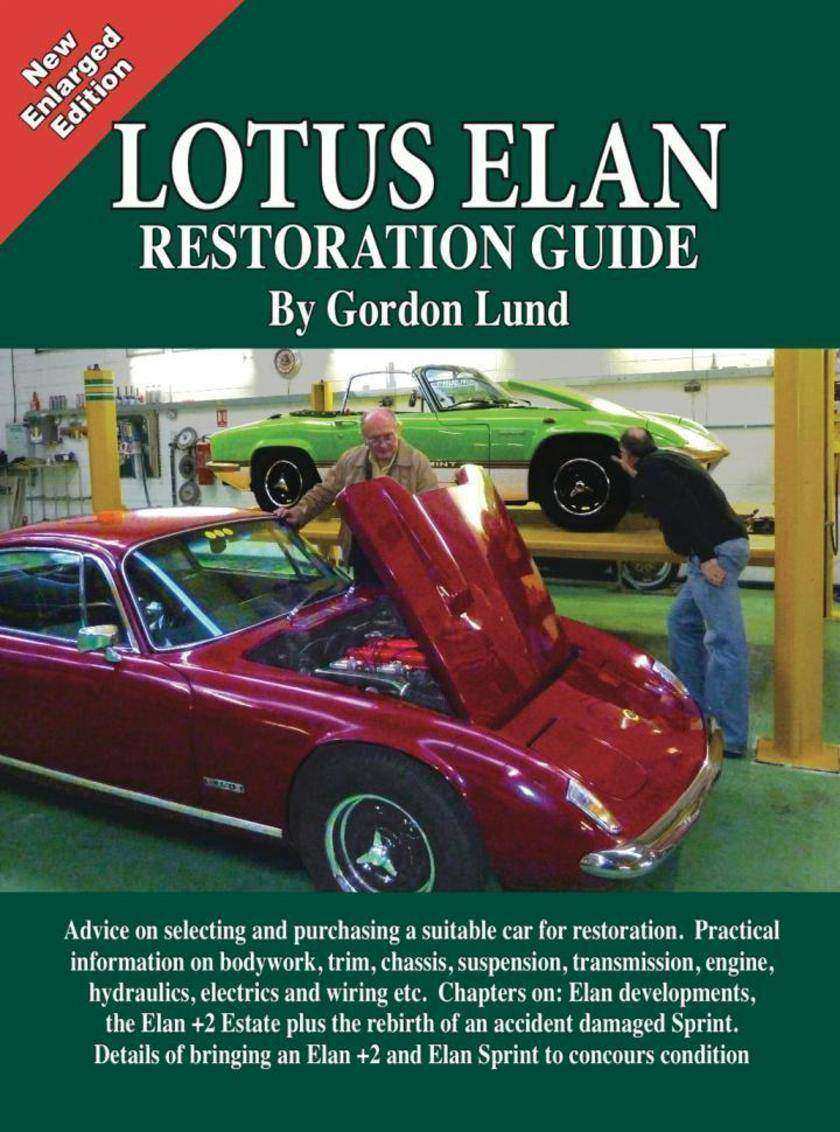
Lotus Elan - A Restoration Guide
¥245.17
The story of restoring an Elan +2 and Elan Sprint to concours edition. Advice on how to purchase a suitable car for restoration plus detailed practical information on preparing bodywork, trim, chassis, suspension, wheels, hydraulics, engine, electrics & wiring etc. 24 Chapters, plus appendices, give information on chassis changing, body restoration, including Elan +2 sills, rebuilding the Lotus/Ford Twin Cam engine, electrics including fitting a new loom, insight to tuning and running in, Elan developments, a remarkable Elan +2 Estate, rebirth of an accident damaged Sprint.




 购物车
购物车 个人中心
个人中心



